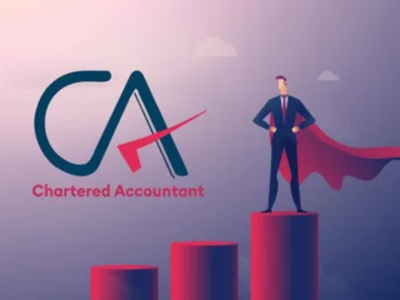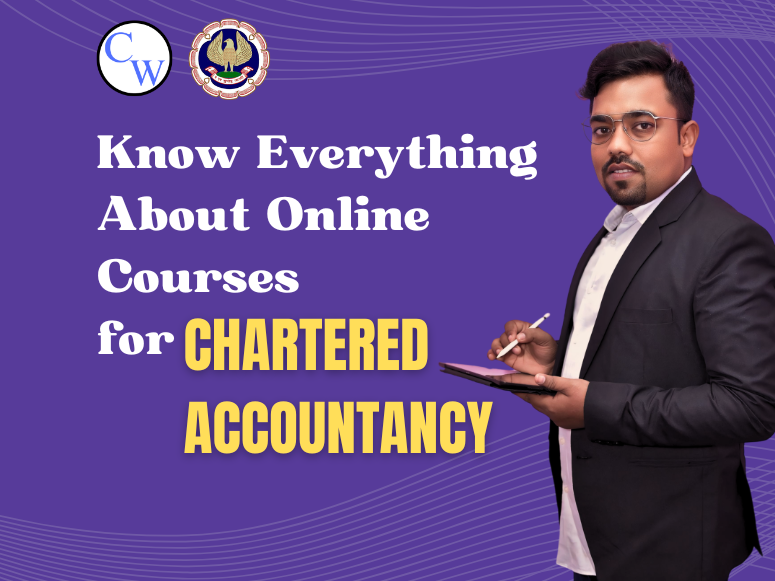Chartered Accountancy (CA) Myths: Debunking Common Misconceptions
Many times covered in myths and misunderstandings, Debunking notions becomes necessary to let students pursue their aspirations. The Chartered Accountancy (CA) profession creates a misleading narrative that discouragement aspirant candidates from following this esteemed professional path. Although learning to be a Chartered Accountant calls for dedication, commitment, and hard work, the real path is far more dynamic and rewarding than what the stories would have you.
Many misunderstandings have made the CA course seem unapproachable or too difficult, which would make prospective students feel they lack the background or skills needed to thrive in the industry.
This article will aim in debunking some of the most often-held misconceptions about the Chartered Accountancy profession and highlight the prospects and reality of this esteemed career. We will also address some often-asked questions (FAQs) to help debunk the inappropriate information and focus on what it needs to be a Chartered Accountant.

Debunking CA Myths: The Truth About a Rewarding Career
“Success is not about intelligence; it’s about perseverance.”This is especially true in the discipline of Chartered Accountancy (CA), sometimes surrounded by misunderstandings. Though the road may appear difficult, the reality is considerably more varied and fulfilling than the legends would have you know. Let us bust the usual misconceptions and expose the reality behind this rewarding line of work.
Myth 1: Chartered Accountants Only Work with Numbers
The most famous notion that needs debunking is CA only works with calculations. Although Chartered Accountants (CAs) deal with numbers, their employment goes beyond mere computation. Financial analysis, audits, taxes, strategic company planning, and even business consulting are just a few of the disciplines in which CAs find application. They guide companies and people in wise financial decisions. Their responsibilities include deciphering difficult financial data, tracking industry trends, and offering doable recommendations to raise company performance. CAs handle problems; their job calls for effective communication abilities to provide financial data to non-financial stakeholders. Their work is therefore not at all boring or limited to calculations.
Myth 2: CA is Only for Commerce Students
Reality: Students from any educational background are free to pursue the CA course against common assumptions. Although people studying commerce could have an initial advantage in courses like accounting or economics, the CA curriculum is set in a fashion that starts with basic information, thus open to students from science, arts, or other fields. Many students from non-commerce backgrounds have devoted themselves to the subject area and effectively passed the CA tests. More than any previous academic path, the CA certificate rewards analytical thinking, logical reasoning, and problem-solving abilities.
Myth 3: You Need Above-Average Intelligence to Become a CA
When it comes to accessing the CA tests, intelligence is sometimes overstated. Though the tests are demanding, they do not call for brilliance. Success in the CA course is more about time management, discipline, devotion, and a thorough awareness of the topics than it is about pure brilliance. Following a steady and systematic approach, thousands of typical students who pass the tests have The CA course is set up to value diligence and endurance above natural ability.
Myth 4: Chartered Accountants Only Deal with Taxes
Although CAs have one area of expertise—that of taxes—this is not the sole one. Training in a variety of disciplines, including financial reporting, auditing, company planning, management accounting, and risk assessment, CAs find Many CAs also serve in consulting capacities, supporting companies through corporate reorganization, forensic accounting, mergers and acquisitions, and other areas. Some even work in disciplines like forensic auditing, looking at financial scams. The CA profession is flexible and dynamic because of its wide range of activities.

Myth 5: CAs Have No Work-Life Balance
Many times, the belief that CAs have no work-life balance is exaggerated. Although preparing for the CA exam calls for great dedication and effort, a CA’s working life may be balanced. Many CAs work in flexible settings upon certification, and with experience, they often have greater autonomy over their calendar. Depending on the sector and the particular position, CAs can also choose freelancing, part-time jobs, or even remote employment. Furthermore, the knowledge gained during CA preparation—especially time management—helps professionals effectively handle several activities, therefore preserving their good work-life balance.
Myth 6: CAs Only Work for Large Corporations
Although many CAs serve global companies and huge enterprises, their area of work is not limited to either. Small and medium-sized businesses (SMEs), government agencies, non-profit organizations, educational institutions, and more can all be found with chartered accountants working in them. Many CAs also enter the corporate world or launch their own consulting companies, with customers ranging in size from small enterprises to people seeking tax or financial guidance. CAs are free to pick from a large range of career paths.
Myth 7: Becoming a CA Takes Over 10 Years
Debunking this misunderstanding is necessary as the CA course is broken out into phases and can be finished in around 4 to 5 years with regular work. This time limit allows the CA Foundation, Intermediate, and Final levels to be cleared assuming the student follows a disciplined approach. Many of the students finish the course in less than five years. Delays might arise, though, if students find diversions during their articleship or fail to pass tests on their first try. The idea that earning a CA takes ten years or more is just an exaggeration of the time some students spend depending on situational or personal circumstances.
Myth 8: You Must Study 16 Hours a Day to Pass CA Exams
Usually, the quality of the study comes first in importance. The true foundations of success in the CA exam are good time management, knowledge of fundamental ideas, and regular corrections. Many effective CA students study for six to eight hours a day with deliberate concentration instead of slaving for sixteen hours without effectiveness. Moreover, dividing study sessions into reasonable portions with enough rest intervals enhances performance and recall. It is about smart study instead of many cramming sessions.
Myth 9: CA is a Boring Profession
Debunking this notion as the CA work is far from monotonous. The financial policies of companies are much shaped by chartered accountants. They guide companies on investments and risk management, assist with crucial financial choices, and negotiate challenging regulatory surroundings. The field is very exciting and dynamic as it changes with changes in world financial policies, rules, and technology. CAs are generally at the forefront of corporate decisions, whether that means advising on mergers and acquisitions or looking at financial scams; their work is both demanding and fulfilling.
Myth 10: CAs Only Work in India
India’s CA certification is accepted in the UK, Canada, Australia, and Singapore. To improve their worldwide employability even further, many CAs decide to acquire other certifications like CPA (Certified Public Accountant) or ACCA (Association of Chartered Certified Accountants). Indian Chartered Accountants have great chances to work overseas or for multinational corporations with worldwide activities. Consequently, location does not define the CA profession; rather, its worldwide reach keeps increasing in the linked world of today.
Conclusion
In essence, aspirant CAs must reject the false notions about the Chartered Accountancy career. Many times, these false ideas dissuade prospective applicants; yet, by debunking the idea that CA is solely about numbers or limited to business students, we expose the actual variety and possibilities this profession presents. By debunking the misconception that only geniuses can achieve, one may demonstrate that tenacity, strategic planning, and devotion are the actual paths to success. In the end, knowing the reality behind these legends helps students to boldly start the fulfilling path of a Chartered Accountant career.

FAQs: Common Questions About Chartered Accountancy
1: What is the eligibility to enrol in the CA course?
Students must have finished their 10+2 (or equivalent) from a reputable board to register for the CA Foundation course. Graduates from science, business, or arts can directly register for CA Intermediate.
2: How long does it take to complete the CA course?
Usually lasting 4 to 5 years, the CA course includes passing all the tests and finishing the necessary articleship instruction. Still, the timing could change based on a student’s exam-clearing consistency.
3: Is the CA exam very difficult to clear?
Though difficult, clearing the CA test is not impossible. Students who prepare with discipline, manage their time, and grasp fundamental ideas will pass the tests. Every year thousands of students pass the CA tests.
4: Can a non-commerce student pursue the CA course?
Indeed, students from many backgrounds—science, business, and the arts—are qualified to register for the CA course. Starting with fundamental information, the program is understandable for students without prior business experience.
5: What are the career options for a Chartered Accountant?
Chartered accountants practice audits, taxation, financial planning, management consulting, forensic accounting, risk management, and more. They could run their practice, or work for non-profits, corporations, or even government agencies.
6: How important is the articleship in CA training?
The CA training includes, among other requirements, articleship, which is essential. It gives students actual accounting, auditing, and other relevant experience. Professional growth benefits much from the practical experience acquired during articleship.
7: Can I work internationally after becoming a CA?
Indeed, Indian Chartered Accountants are much sought after all around. Many CAs get ACCA or CPA qualifications to improve their global career options; the CA credential is accepted in many countries.
8: What is the starting salary for a Chartered Accountant?
Depending on the company, sector, and area, a Chartered Accountant in India usually starts their pay between ₹6 and ₹10 lakhs annually. Experience increases the pay greatly.
9: Can I specialize in a particular field as a Chartered Accountant?
Chartered Accountants can indeed specialize in several disciplines, including taxes, auditing, forensic accounting, financial analysis, business law, or risk management. Specializing helps one develop competence in a given field.
10. Is CA the only option for a career in finance and accounting?
CA is a respected accounting and financial degree, however, MBA in finance, ACCA, CPA, and CMA are all available. Every certification provides several job paths and has varied emphasis.




